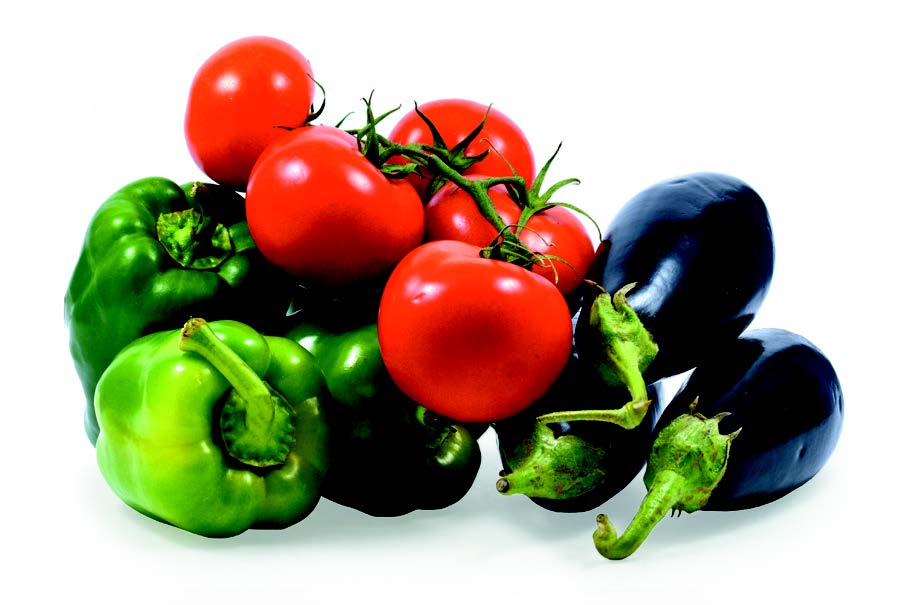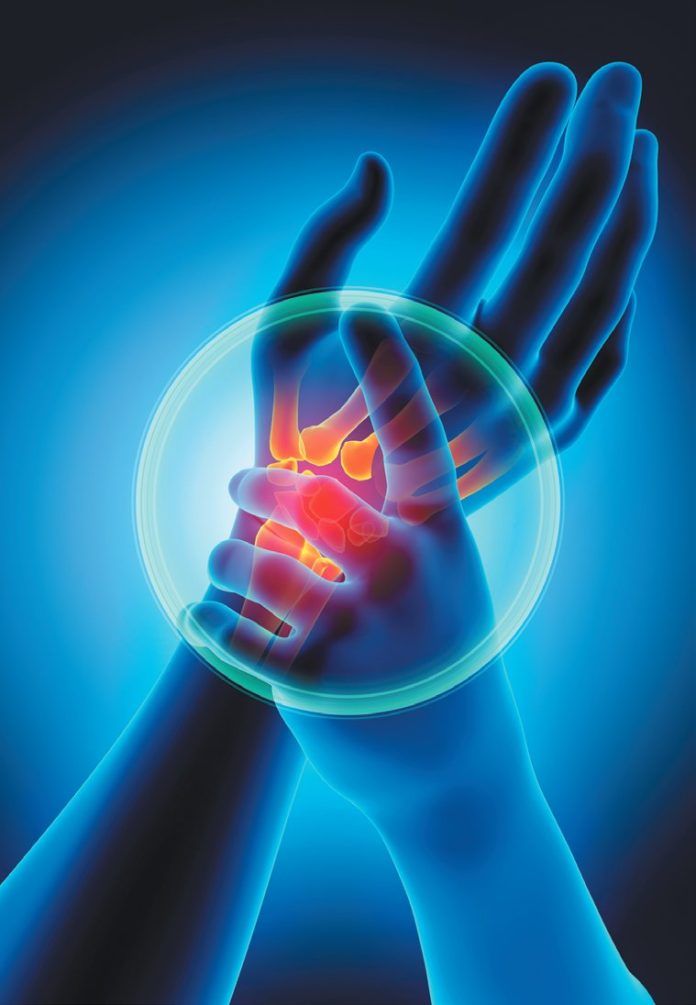Vegetables from plants in the Solanaceae family (also called nightshades) have been getting a bad rap. Peppers, tomatoes, white potatoes, eggplants, and their botanical cousins are accused of harboring harmful compounds that aggravate arthritis pain and inflammation. Understanding what’s behind these assertions may help ease concerns.
A Dangerous Relative: Belladonna, or deadly nightshade, is a toxic plant infamous in history (and mystery novels) as a source of poison. Compounds in belladonna called solanines can cause delirium, hallucinations, and even death in high concentrations. But no nightshade vegetable cultivated for human consumption has anywhere near a high enough level of solanines to cause such ill effects.
Solanines are part of the natural defense system in this family of plants. It is reported that they are poorly absorbed by the human body and rapidly excreted. Solanines are not destroyed by cooking, but both boiling and frying do reduce the amount of these compounds. The greatest concentration of solanine is found in white potato sprouts and areas that have turned green from exposure to the sun. This compound is behind the rumor that green potato chips are poisonous. The truth is, one would have to eat a lot of green potato chips before developing even minor symptoms. To be on the safe side, the shoots and green parts of potatoes (which have higher concentrations of solanine) should be avoided, especially by children, who are more susceptible than adults to ill effects. According to the National Institutes of Health Toxicology Data Network, the usual concentration of solanine in potatoes has no toxic significance.
Green tomatoes contain a related compound called tomatine, which helps the plant fight off fungi, presumably by disrupting the cell membranes of these invaders. While the ability of tomatine to disrupt cell membranes has led to much speculation about potential damage to human cell membranes, there is currently no evidence that suggests tomatine can harm human health, and there are no reports of humans getting sick from eating green tomatoes. In fact, tomatine binds to cholesterol and has been shown to lower LDL (“bad”) cholesterol in hamsters, suggesting that it may have beneficial effects on blood lipids of humans.
Nightshades and Joint Pain: “The idea that people with arthritis should avoid nightshade vegetables has been around for many decades, but research has found no evidence that nightshades have any effect on joints or can make arthritis worse,” says Marcy O’Koon Moss, senior director of consumer health at the Arthritis Foundation. “Some people do report that eliminating specific foods or food groups reduces their joint pain. If you suspect that certain foods trigger your arthritis pain, you may want to consider an elimination diet under the care of your physician or a registered dietitian,” says O’Koon Moss. “Keep in mind, however, that it can be very difficult to tell if a change in diet improves inflammatory conditions like rheumatoid arthritis. This condition waxes and wanes, so it’s hard to know if an improvement is due to a change in diet or is just part of this natural cycle. With inflammatory arthritis, medical treatment is what keeps the disease under control. Diet doesn’t prevent the permanent joint damage that comes from uncontrolled inflammation.”
Doing Good: Nightshade vegetables are rich in nutrients, making them a worthy addition to most diets. The Arthritis Foundation even puts one group of nightshade vegetable, peppers, on their list of “Best Vegetables for Arthritis.” Peppers of all types are rich in vitamin C, which may protect cells in cartilage against damage. Just a half-cup of red bell pepper, for example, provides a whole day’s supply of vitamin C, along with carotenoids like beta-cryptoxanthin, which some research suggests could reduce risk of developing rheumatoid arthritis and other inflammatory conditions. According to the Foundation, getting less than the recommended 75 milligrams (mg) of vitamin C a day for women and 90 mg for men has been associated with higher risk for osteoarthritis of the knee.
“Avoiding nightshade vegetables isn’t ideal, because vegetables are really good for general health, and for arthritis,” says O’Koon Moss. “If you eliminate any vegetables from your diet, make sure to replace them with other nutrient-rich vegetables.”

Nightshade vegetables have many potential health benefits, and no proven harms. Here are some things to think about:
-Be cautious about negative claims you may see regarding nightshades
-Consider a systematic elimination diet guided by your physician or a registered dietitian if you suspect that certain foods may worsen your arthritis pain

























I have a sensitivity to eggplants. I find if I get them with fewer seeds it seems to lessen the sensitivity. Is the solanines in the seed? I love eggplant so still want to eat it as I can.
My parents eliminated nightshades from their diet, & found relief from osteo-arthritis. My mother even did an ‘add back’ challenge w/ tomatoes, & once again, couldn’t turn her neck. A family friend (biochemist) who was the head of the nutrition dept. of the local university commented that it was unusual that to (genetically) unrelated members of a family both reacted to nightshades. So it seems that there is a genetic component to sensitivity to solanine.
Much appreciate this info. Very reassuring.
My husband had solanine poisoning at one time. We were buying the Yukon Gold potatoes back then and I had cooked his dinner consisting of a grilled steak and microwaved a potato. While preparing the dinner I noticed that the gold skin had a green tinge to it. At that time we knew nothing about solanine poisoning. The next day my husband was sick with stomach cramps so painful that we was pulled off the construction job and rushed to the hospital. They did all sorts of blood work, CT scan, chest x-ray and found nothing. But because he was so sick they admitted him. He was in the hospital for two days and the doctors did not have a conclusive diagnosis. They did not test for toxins. My husband was put off wanting to eat steak and baked potatoes for a very long time.
Several weeks later we were watching one of those TV shows about how people mysteriously died and in one episode it was about how a person was poisoned with solanine. We then realized what had happen to my husband and to this day I am very careful about buying potatoes.
This was very informative for i love tomatoes and bell peppers. Am 81 years old and eat a lot of these veggies.
Sometime I think people who eat a lot of night shade vegetables also may be consuming a lot of foods,
like pasta, pizza, spaghetti, which all have too much processed foods in them to begin with. So thanks for this very informative article.
Thank you. I enjoy them all and eat them without any ill effect.
Excellent meeting thank you so much